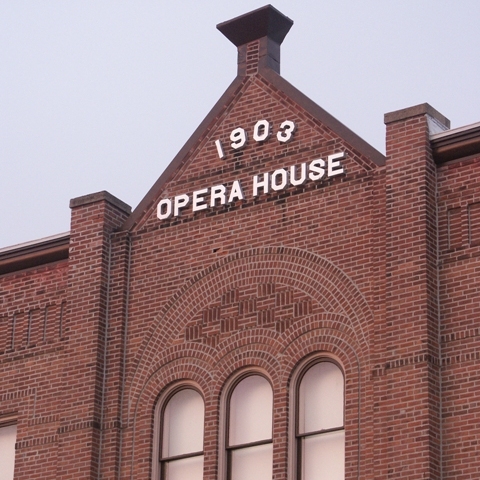
Address: 207 N Main St, Elkader IA
Phone: 563-245-2098
Open to Public: Yes
Activities: Entertainment, Self-guided driving/walking tour
The Elkader Opera House was completed in November 1903, replacing the old Turner Opera House which was destroyed by fire in 1902. Within four days of the Turner House fire the community raised $10,000 for the construction of a new opera house. Less than a year later, on November 26, 1903, the George M. Cohen musical, The Governor’s Son, opened in the rebuilt theater. Special trains ran from McGregor and other towns along the Milwaukee line to bring the audience to the show that night.
Throughout its history the Elkader Opera House has played a central role in the social and civic life of our community. Productions on the Chicago-Minneapolis circuit were a regular part of its early offerings. It has served as a club and community room, dance hall, roller rink, library, fire station, economic development office, city hall and as the Abd el-Kader Sister City Museum.
The three-story structure has a square-front design with decorative brick detailing. Unique features of the auditorium are the horseshoe balcony, a ruby glass chandelier and a period stage curtain advertising shops from Elkader’s past. The building was placed on the National Register of Historic Places in 1976. It has undergone extensive renovation to restore its 1903 beauty and to modernize access and facilities. Working independently, the Opera House Restoration Committee raised over $280,000 to finance this project and volunteers have logged over 22,000 hours to make it successful.
In addition to concerts and special performances by local and imported groups, the Elkader Opera House provides a venue for productions by the Opera House Players. In November 2003 the Opera House Players celebrated the centenary of this historic structure with a production of The Governor’s Son, the show which opened the house in 1903.
This article is based on information compiled by Charles Schiller.
